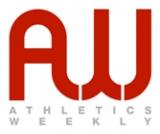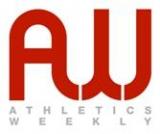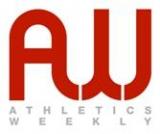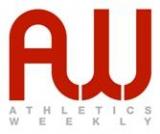Folders |
Coaching philosophy: David Rudisha and Colm O ConnellPublished by
The training philosophy of David Rudisha and coach Colm O’Connell is looked at by Matt Long and David LowesOn August 9, 2012, inside the London Olympic Stadium, David Lekuta Rudisha strode elegantly to 800m victory with gun-to-tape tactics, stopping the clock just a fraction over 100 seconds for two laps of the track. His world record remains unchallenged so let us take a look at the training philosophy of his coach, the great Colm O Connell. Coaching guru O Connell has famously declared that there is no secret” but we can delve a little deeper to have a look at the two men who starred in the screening of a BBC documentary show David Rudisha: 100 seconds to beat the world. We begin by exploring the six lessons behind the coaching philosophy of the Irish Patrician Brother from Cork, who took a teaching job in the Kenyan town of Iten back in 1976. 1. You don t need to have been a great athlete to be a great coach
The lesson here is that some top coaches may have been former top athletes, but many will not have been. Either way, quality coaching requires a different skill set from being an elite athlete. 2. Coach the whole person and not just the athleteThe recent BBC documentary revealed O Connell addressing a classroom of young students with the message that he aimed to develop, people with potential in many areas, not just athletics.” He encouraged his fledgling athletes to develop a sense of spirituality and the ability to commit to hard work on and off the track. Significantly, Rudisha himself reflected that O Connell has been a mentor and counsellor as much as a coach with the man himself stressing, the secret is in the head, not the legs”. 3. Be athlete-centred, not coach drivenO Connell says: I developed a sense of observation and a keen sense of the awareness of the athlete s personality. I didn t have a structure in my mind, to squeeze an athlete in this or that way of training.” So a one-size fits all approach to training is clearly not appropriate. Part of being athlete-centred is to discover what works best tactically for the athlete. It was after the relative failure of Rudisha s elimination at the semi-final stage of the 2009 World Championships that he became a front runner attempting to lead from gun to tape. O Connell says: With his height of 1.89m, David is the dominant figure in a race. He is a power runner and likes running in front.” His splits for his phenomenal 1:40.91 world record in the London 2012 Olympic final were 23.4 seconds for the first 200m, 25.8 for the second, a critical 25.0 for the third and 26.6 to bring home the gold. 4. Retain a focus on process as well as outputThe aforementioned ‘100 seconds documentary showed a session supervised by O Connell shortly after Rudisha s decision in March 2007 to continue working together at senior level. Rather than dictate that Rudisha must hit 60-second lap splits on a repetition session, O Connell was clearly interested in the running style of Rudisha and noticeably didn t call out a lap time so as not to worry” his athlete. Clearly this indicates at times coaches must retain a focus on process and not just what the late great Bill Bowerman would have called ‘goal pace . 5. Great coaches are great improvisersO Connell once said of his work with Rudisha: In the morning before a track workout I see him in the house and ask him: ‘How do you feel today? If he tells me he doesn t feel really well or if he indicates to me, even indirectly, he is not ready, we would skip the session and go on the roads instead a fartlek or light training.” This teaches us that despite the need to plan training sessions the coach must be prepared to improvise so that the schedule remains a means to an end rather than an end in itself. 6. Deal with adversityCoach O Connell has admitted to periods of self-doubt during 2009 when Rudisha s form was faltering at times and reflected: It s easy to be a coach when things are going well.” His willingness to continue working with his athlete through adversity culminated in ‘light at the end of the tunnel when in August 2010 Rudisha broke Wilson Kipketer s 800m world record with 1:41.09 in Berlin. The record was lowered further to 1:41.01 at the Diamond League Meeting in Rieti just one week later. Rudisha s early trainingAfter having a trial period in April 2005, Rudisha joined O Connell at St Patrick s in Iten in August of that year as a 16-year-old at one of his junior athletics camps. In terms of frequency he will have typically trained twice a day for six days a week. This may surprise and even alarm some coaches of junior athletes in this country who rightly retain a focus on long-term athlete development. Rather than having a complete day off, his rest day seems to have involved the active recovery of a steady run of around five miles. In addition, attention to recovery appears to have been paid in terms of regular static stretching. A focus on biomechanics was paid through the routine performing of dynamic drills and strides, the latter often taking up to 45 minutes to complete. Strength endurance was developed via an at least once weekly circuit session and medium length hill reps of around 120-200 metres. Speed endurance sessions involved repetitions of one to two minutes in duration as well as a 60-75-minute fartlek. In terms of aerobic endurance Rudisha s weekly long steady run was typically no more than 60 minutes in duration. Self-reflectionThe above leaves both middle-distance and endurance athlete and coach with the following questions for self-reflection: How frequently should I be training? Do I need recovery days which are passive or active like the young Rudisha? Do I pay enough attention to the technical aspects of training as Rudisha did with daily drills? What are the ways in which I develop my focus on strength endurance? Do I employ a diversity of sessions like Rudisha to cater for the development of the speed endurance component of my work? Dr Matt Long supports Bud Baldaro under head coach Mike Bull at the University of Birmingham AC. David Lowes is AW s coaching editor and a former international athlete The post Coaching philosophy: David Rudisha and Colm O’Connell appeared first on Athletics Weekly. Read the full article at: www.athleticsweekly.com
More news |







 With 25 of his students having gone on to become world champions, and four having become Olympic champions, the man who is Kenya s most successful middle-distance coach of all-time had no athletics career when he arrived at St Patrick s high school in his late 20s. His colleague, Brother Paul Brennan, recalls with affection: He never ran a race in his life.”
With 25 of his students having gone on to become world champions, and four having become Olympic champions, the man who is Kenya s most successful middle-distance coach of all-time had no athletics career when he arrived at St Patrick s high school in his late 20s. His colleague, Brother Paul Brennan, recalls with affection: He never ran a race in his life.”